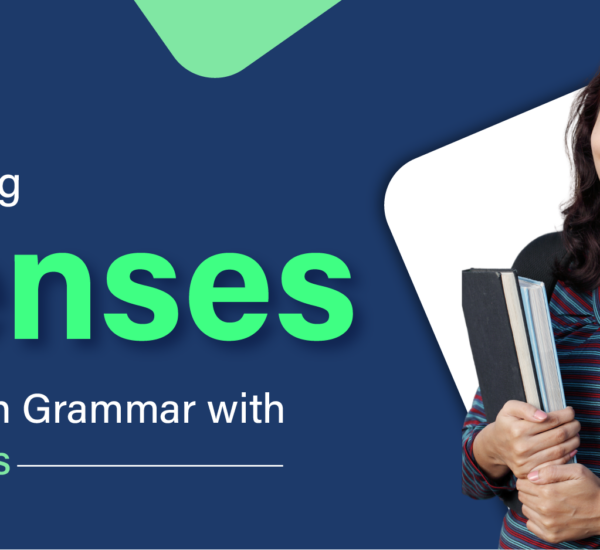Noun is a part of speech which functions in naming a specific object or set of objects, such as places, living creatures, qualities, actions, states of existence, or ideas. In English, They are perhaps second only to verbs as an important part of speech. It’s tough to convey much without resorting to the use of it.
They come in a variety of forms in a language. It’s helpful to know what sort of noun a noun is since different types have different constraints. This makes it easier for you to use them properly. Now that you know the noun definition, let’s move to the types of nouns sections with noun examples.
Types of Nouns
Check out the types of nouns and examples to get a better understanding of its importance in the English language.
Common Type
Every noun can be classed as either a proper or a common noun. Common nouns are words that are used to refer to a broad range of goods instead of specific ones. Enter the living room. What do you think you see? A chair, a lamp, a couch, a television, a window, a cushion, a painting, and a candle are all named using common nouns.
Common nouns are all around us, and we use them all the time, even if we aren’t aware of them. At least one common noun can be found everywhere. All of these locations are things, so they are common nouns: bathroom, college, street, closet, mall, petrol station, and lounge room.
Also Read: Grammar Errors to Avoid: How to Improve Your English Grammar?
Common Examples
Teacher
Car
Music
Ranger
Receipt
Proper Type
A PN is a word that refers to a specific individual, place, or thing. Think about a city for a moment. You’re probably picturing a city with tall skyscrapers, heavy traffic, and congested streets. The noun city isn’t a PN because it’s general and can refer to a variety of locations. Imagine New York City, France, London, or Beijing now.
You’re probably seeing extremely particular sites, places, and destinations this time. These nouns are all PNs since they refer to distinct locations on Earth that can only be discovered in one place.
PNs have a specific rule that they must always be capitalised, irrespective of where they occur in a phrase.
Proper Examples
Jane
Thailand
Sunday
James Bond
Einstein
Superman
Game of Thrones
Shakespeare
Concrete Type
“A noun expressing something substantial and non abstract” is what a concrete noun is. The term “concrete” refers to a noun that “represents an actual substance or thing rather than an abstract attribute.”
Concrete nouns, on the other hand, refer to the objects we can perceive with our 5 senses. A concrete noun is used to describe something that can be seen, smelled, heard, tasted, or touched. And, if you remember your elementary school science classes, you’ll recall that our senses interpret these things as matter.
“Physical or corporeal substances,” whether solid, liquid, or gaseous, are referred to by these terms. Smoke, for example, can be seen. You can detect the scent of a flower. A whistle can be heard. Bananas are detectable. You can get close to a ladder.
These terms are all tangibles. Concrete nouns help us develop strong grammar and explain the world around us, just as concrete is essential in the construction of buildings.
Concrete Noun Examples
Man
Rice
Head
Car
Furniture
Mobile phone
Abstract Type
Concrete nouns are the polar opposite of abstract nouns. They’re stuff you can’t get your hands on. Ideas, concepts, and sentiments are examples of abstract nouns. “A noun expressing anything immaterial and abstract,” defines an abstract noun.
Another prevalent interpretation of abstract nouns is that they refer to entities that are not visible to the naked eye. Abstract words cannot be seen, smelled, heard, tasted, or touched. Intangible entities that do not exist as physical objects are referred to as abstract nouns.
The word kitty, for example, alludes to a cute animal. A kitty may be seen and touched. The noun kitty is not a noun that can be abstracted. The term luck, on the other hand, refers to a sophisticated idea regarding the likelihood of good or terrible things happening to someone.
Also Read: Online Grammar Tools To Use: Let’s Get Perfect at English Grammar Proficiency!
Abstract Examples
Happiness
Courage
Danger
Truth
Countable Type
A countable noun is a word that generally refers to a countable entity. It can be used in both the plural and singular forms in a language. It can be followed by the indefinite article an or an or by a digit.
Generally, if something can be counted, it is called a countable noun. Singular nouns and multiple nouns are both CNs. The words apple, monkey, and chairs, for instance, are CNs. You can count how many apples you have in your basket, how many monkeys there are in the wildlife park, or how many seats there are at a show.
Countable nouns may appear straightforward, yet they can be challenging at times. Some words may well be CNs in some contexts but not in others, based on how they are employed.
Countable Examples
Ball
Boy
Cat
Person
Uncountable Type
A word that often alludes to an endlessly divisible material or an abstract notion, and that in English cannot be used, in such a meaning, with the undefined article or in the plural.
In layman’s terms, what exactly does it mean? An uncountable noun, on the other hand, is a noun that cannot be numbered with numbers. As a result, UNs rarely utilise the articles an or an, and they rarely have plural forms. You don’t feel happy, for example, and the word Pacific Ocean doesn’t have a plural form. Counting items referred to by UNs, like 1 piece or 37 pieces, would also be strange.
An uncountable noun, on the other hand, can utilise a plural verb if it is interpreted as a plural word.
Uncountable Examples
Water
Happiness
Cheese
Collective Type
A collective noun refers to a collection of individuals or things
Collective Examples
Class (group of students)
Pride (group of lions)
Crew (group of sailors)
Pack (ground of wolves)
Crowd (group of people)
Compound Type
A compound noun is one that has two or more words in it. [noun + noun] or [adjective + noun] are the most common compound nouns. Adjectives and other nouns can modify each compound noun, which works as a single entity.
Also Read: How to be Fluent in English? Check Out the Best Cost-Effective Methods to Ace this Foreign Language
Compound Examples
Cat food
Blackboard
Breakfast
Full moon
Washing machine
Software
Conclusion
In sentences, nouns can perform a variety of functions. They are, without a doubt, the most overused of the 8 parts of speech. In statements, they have the competence to implement a variety of roles or occupations.
Language learning and English grammar are built on their foundation. When learning a new language, one of the very first things that individuals learn is nouns. There are more of them in English than any other sort of word.
If you want to learn the other parts of speech for your English improvement, you can check out the blog section of The Fluent Life.
Also Read: Proper Uses of Simple Present Tense in English: A Guide to Better Grammar






